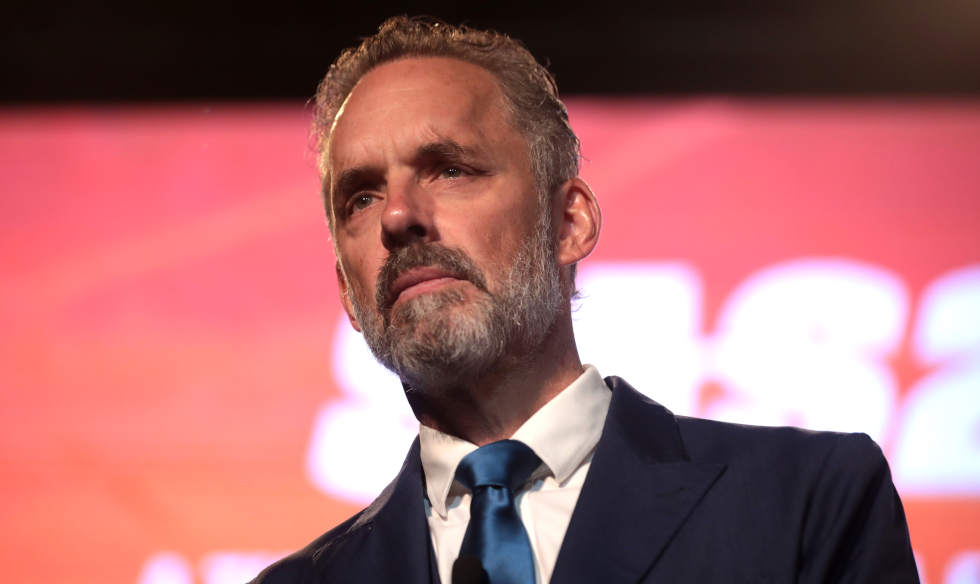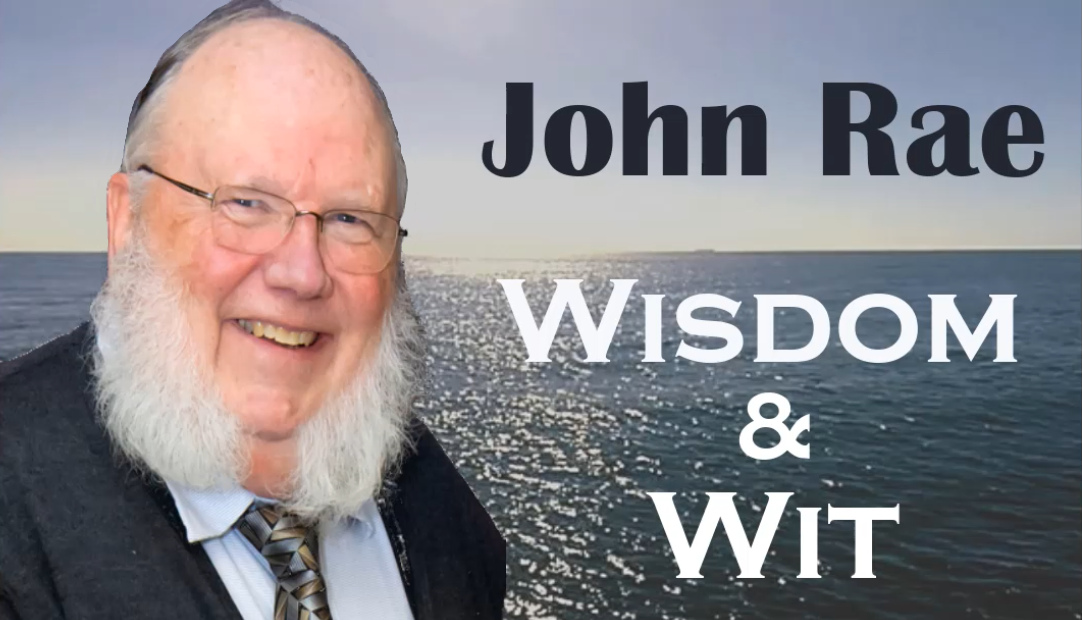In this presentation I'm attempting to integrate insights from a number of sources, that I've either read or listened to, over the last little bit. They include: Gil Bailie, Rene Girard, John Polkinghorne, Brad Gregory, Eve Keneinan, Patrick Coffin, others and, of course, Jordan Peterson. Where I give a direct quote, I'll reference the source.
The English theoretical physicist and theologian, Rev. Dr. John Polkinghorne, presents a schematic of reality that encompasses both of his specialties:

l've given a simplified explanation/example of each layer, using religious terminology.
As an example of what Polkinghorne means at the "mathematical" level, consider the following example using Euler's number: e (2.7182818284590452353602874713527....). It is the base for natural logarithms and has a number of interesting properties. Plotting the radius obtained by raising e to a function of a set of increasing angles, generates the following spiral:

This is the same spiral found in sea shells, the swirl shape of a hurricane, the shape of a spiral galaxy and the shape of a rose. The Mathematical substrate is alive and well.

If you imagine Polkinghorne's six layers like the six strings of a guitar, they each have their own resonant frequency and yet they harmonize with each other so that it is possible to actually play chords and make music. This was my attraction to Catholicism, after 60 years of being a Protestant. This doesn't imply that the institutional Church is "sparking on all cylinders". lt's just that the Catholic arsenal has the complete set of offensive and defensive weaponry for the Church Militant, here on earth.
for Brad Gregory, in his book "The Unintended Reformation" this harmony was compromised by the Protestant Reformation. With the invention of the Penal Theory of Atonement, the methodology of righteousness moved from an "infused" one to an "imputed" one. Using the Penal model, you're either found guilty or innocent before God and your potential innocence is a function of being imputed with the righteousness of Christ. Sacraments that use the "infused" methodology are passé, they might be nice 'symbolic' optional extras but they're not part of the basic model. With the new "Sola Scriptura/Sola Fide" (Scripture and Faith) prototype you could now become a Christian in the comfort and privacy of your own home (without need of the Church). Referencing 1 Timothy 2 :5, "For there is one God, and one mediator between God and men, the man Christ Jesus;". The reformers saw the Catholic Church sticking its sacramental nose in where it didn't belong.
With no sacraments to administer, the Church was redefined in terms of being primarily a sociological entity. For example, this is a quote from a Protestant pamphlet, circa 2017: "Church is simply a gathering of Christians who get together to worship God, to hear what God is saying to them, to encourage one another and to make friends. It should be a very exciting place to be!" The "Mystical Body of Christ" morphs into a religious country club!
With this, the Mystical starts to be off loaded into the Sociological. Using Ulysses’ speech from Shakespeare's Troilus and Cressida:
Take but degree away, untune that string, And hark what discord follows! each thing meets In mere oppugnancy.
ln this quote, I'm interpreting "degree," as "structured wholeness" and "oppugnancy" as an aggressive adversarial stance. For Brad Gregory, the law of untended consequences, following on from the Protestant reformer's initiatives has, in large part, generated the western world in which we live and move and have our being. "...cultural Protestantism, which has the tendency of dissolving, and dismissing from our thought, everything mysterious". - Dr. Michael Pakaluk - The Catholic Thing Magazine, June 26, 2018.

The secularization, following on from the Reformation, off loads more and more into the Sociological so that it starts to become, more and more, the only "game in town". The Sociological becomes the place to "be", since the Ontological, Mystical and Moral have been siphoned out, into it. The attempt is then made to reconstitute these desiccated layers as "social constructions". In some sense, having a bloated Sociological is symptomatic of a heretical condition. This organ, swollen out of all proportion, affects the proper functioning of the whole organism. You would hate for it to metastasize!

Malcolm Muggeridge's 1967 (the Summer of Love) comment is interesting. A year later, in 1968, Jacques Derrida and the deconstructionists arrived on the scene. Scientific Materialism, the belief that the Mathematical and Physical (Science) is the font of all knowledge, was about to eventually meet the "Shapeshifters" of Post-Modernity who would use sex/gender as their weapon of choice against the objectivity of science.
In the following diagram there is a division between Modernity and Post-Modernity, this quote from Orthodox philosopher Eve Keneinan explains that division; “Christians teach the objectivity of all of reality: nature, ethical truth, religious truth. Moderns are divided: they teach the objectivity of some things, usually science; but deny the objectivity of meaning, beauty, purpose, morality. Postmodernists deny objectivity entirely." Eve Keneinan - Nov. 18, 2017.

This is where l think that Jordan Peterson enters into picture. As a social scientist, the Mathematical and the Physical layers ground the empirical nature of his scientific expertise. Once the Post-Modern deconstructionists start dehydrating those layers with, for example; Feminist Mathematics, feminist Glaciology and Gender Ideologies, there is cause for concern.
Jordan Peterson is a scholar of Friedrich Nietzsche, and I think that Nietzsche can be mapped, somewhat, onto Polkinghorne's grid: "God is dead. God remains dead. And we hove killed him. Yet his shadow still looms." - Friedrich Nietzsche - The Gay Science. By denuding the Ontological and the Mystical we have virtually erased God from the scene. Extending this line of thought into Fyodor Dostoevsky, another author that Peterson quotes: “If there is no God, everything is permitted." - Fyodor Dostoevsky - The Brothers Karamazov. Once the Ontological and Mystical are emptied the Moral is next. We are living Shakespeare's; "And hark, what discord follows!"
The Girardian scholar, Gil Bailie tracks the changes in the default cultural anthropology, of the west, over the last 500 years. This is illustrated in the light blue area on the right hand side of the full page diagram (below). We have moved from the Pauline model of brothers and sisters of Christ within the larger Church related by the reciprocity of Love to a much less feature rich and minimalist anthropology, where it is the just naked individual and collective related only by the asymmetry of power in the direction of the collective. Mapping Polkinghorne and Bailie, on the same grid gives a revealing analysis.
The types of culture generated by each of these anthropologies will be quite different. Interestingly the individual/collective related only by power, sets up the playing field for what Rene Girard calls the "Primitive Sacred" where scapegoating becomes the modus operandi for trying to generate societal order. (ie: Identity Politics, where the road to "peace" is paved with victims). Girard's analyses of the inter-dividual and scapegoating offers a interesting critique of using the 'individual/collective' motif as a cultural foundation, but that's another discussion.
The fundamentol error of socialism is anthropological in nature, Socialism considers the individual person simply as an element, a molecule within the social organism, so that the good of the individual is completely subordinated to the functioning of the socio-economic mechanism... This makes it much more difficult for him to recognize his dignity as a person, and hinders progress towards the building up of an authentic human community.
- Pope John Paul II, May 1, 1991 - from Centesimus Annu
Jordan Peterson is highly critical of ideologies that see the asymmetry of power as their axiomatic basis. He is quite passionate about the absolute human disasters that have unfolded where these ideologies have been put into practice (the Holocaust, the Ukrainian Holodomor, the Soviet Gulags).
ln his attempt to keep the Mathematical and Physical from being dissolved into the Post-Modern Sociological, Jordan Peterson is in effect contributing to the resuscitation of the other layers. From a Catholic point of view, perhaps he is not so much an Apostle but an Old Testament prophet, in the mode of Ezekiel, who asked "can these dry bones live again?" Jordan Peterson seems to be trying to rehydrate the modern and post-modern "dry and thirsty" land. He is becoming an oasis of reason in the Post-Modern desert. (Millions of YouTube views, of his Old Testament lectures)
For the Moral: Although he acknowledges that in the Post Modern milieu there are an infinite number of readings of the "text", of life, statistically there are only a finite number that can be successfully implemented, without imploding on themselves. So, for the greater good, there are human social experiments that should not be attempted. There is a Moral substrate whose provenance is not a 'social construction'.
For the Mystical: Peterson's use of the Jung's "collective unconscious" and "archetypes" introduces an analysis that transcends the notion of "social construction based on the politics of power". For some Catholic writers there are tethers of continuity between Jung's analysis and the "cloud of witnesses" and the "communion of saints", within Catholic Theology.
For the Ontological: l thought that his answer to the question of God, in one of Patrick Coffin's interviews was quite telling. First a bit of background; Jacques Derrida, the Caiaphas of the post-modern deconstructionists, said we are caught in a grid of metaphors, that language is totally self referential so that by using language we can discover nothing outside of the "text". In other words language can never touch the hem of the garment of reality. In an answer to Patrick's question on God and the Scriptures, Jordan Peterson's answer was something like this: "lf you think that metaphor can exhaust the Scriptural discussion of God, maybe you should think again?" This is quite delicious, for he is using the 'hermeneutics of suspicion', against a Derridean reading of the "text", that everything is reducible to metaphor, to cast doubt on the Post-Modern belief in the emptiness of the Ontological.
As Christians, living in the land of the bloated Sociological, we find ourselves exiled in a new Babylon. It becomes more and more difficult to sing the Lord's song in this strange land. The prophet Ezekiel came to prominence in the time of Babylonian exile. This is a description of Ezekiel, from www.biblica.com;
Ezekiel was obviously a man of broad knowledge, not only of his own national traditions but also of international affairs and history. His acquaintance with general matters of culture, from shipbuilding to literature, is equally amazing. He was gifted with a powerful intellect and was capable of grasping large issues and of dealing with them in grand and compelling images. His style is often detached, but in places it is passionate and earthy.
Although, at this point, Jordan Peterson might be a bit of an enigma in his Orthodoxy l think he can be seen a co-belligerent in his Orthopraxy, after the order of Ezekiel.

Credit: Photo of Jordan Peterson by Gage Skidmore at https://flickr.com/photos/22007612@N05/45739371384
Waterspout photo:






